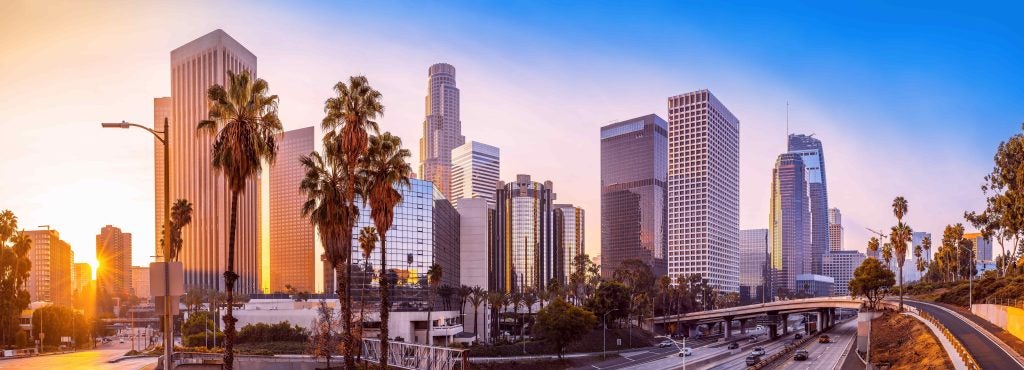
The hospitality industry, the third-largest employer in Britain, has a substantial impact on the planet, making up to 15 per cent of the UK’s greenhouse gas emissions.
It’s little surprise, then, that amid growing international pressure following events at COP28 and increasing scrutiny from the public, many of the industry’s biggest players have stepped forward with bold statements about reaching carbon neutrality and Net Zero.
But with the roadmap to Net Zero and a greener future for pubs, bars, restaurants, and hotels appearing increasingly complex, understanding how to back those statements with meaningful action can be a challenge. Indeed, even knowing where to begin can be a significant barrier for many.
Energy is a substantial cost and a major contributor to scope 2 emissions, so it’s a great place for many companies to start. A mix of energy saving initiatives and investment in renewables can have an almost instant and significant impact on cost and emissions; and savings can then be re-invested into other measures.
Motivation matters
Operating at the forefront of renewable energy system installation for over 13 years, we’ve seen the industry go through many changes but one of the main shifts has been what motivates customers to invest in renewable energy.
While the Feed in Tarriff (2010-2017) was a major driver for businesses investing in solar panels – and recent high energy prices have been another financial reason behind uptake – it’s important to recognise that motivators extend beyond simple cost savings and return on investment.
How well do you really know your competitors?
Access the most comprehensive Company Profiles on the market, powered by GlobalData. Save hours of research. Gain competitive edge.

Thank you!
Your download email will arrive shortly
Not ready to buy yet? Download a free sample
We are confident about the unique quality of our Company Profiles. However, we want you to make the most beneficial decision for your business, so we offer a free sample that you can download by submitting the below form
By GlobalDataIncreasingly the hospitality industry is motivated by reducing its emissions and increasing its sustainability credentials – even more so as consumers’ demands for eco-conscious brands are rising.
In the UK, we stand on the precipice of a pivotal moment, and the hospitality sector is not exempt from the winds of change. What was once considered a “nice-to-have,” the sustainability credentials and commitments that companies make to our planet are quickly changing into critical factors influencing consumer choices and purchasing decisions.
Recent research conducted by KPMG in the UK underscores the significance of these shifts. Over half (54%) of consumers say that they would stop buying from a company if they were found to have been misleading in their sustainability claims. While almost a fifth (18%) are already voting with their feet and say they have changed their mind about a company due to misleading green claims[1].
These findings spotlight an interesting narrative: sustainability is no longer a secondary consideration but a primary driver influencing consumer behaviour, shaping brand loyalty, and ultimately changing the landscape for businesses in the hospitality sector.
It’s increasingly evident that hospitality brands are actively addressing this, and we’ve already seen positive progress. Almost 400 companies operating UK pubs, bars, restaurants, and hotels across 4,738 sites, have signed up to UKHospitality’s carbon calculator to better understand their own emissions and take action to address them.
Armed with such insights into scope 1, 2 and 3 emissions throughout the supply chain and product life cycle, organisations can begin to formulate strategies to reduce emissions and improve their green credentials.
A case for change: Mitchells & Butlers
One such brand taking progressive steps to a greener future is Mitchells & Butlers. The largest operator of restaurants, pubs, and bars in the UK took a landmark step in 2019 by implementing a sustainability strategy. Alongside their commitments to the local communities they serve and responsibly sourcing products, the brand has set ambitious targets.
These targets include reaching Net Zero by 2040, reflecting a commitment to offsetting or neutralising their carbon footprint. Additionally, there is a pledge to achieve zero operational waste to landfill and produce 50 per cent less food waste by 2030, emphasising a focus on waste reduction and efficient waste management practices. But how is the brand delivering on these promises?
Mitchells & Butlers has taken a proactive approach to environmental sustainability by ensuring that all its energy is generated from renewable sources. While this initiative has notably reduced the company’s emissions, it didn’t shield them from recent price hikes. To counteract this challenge, in 2023, the brand initiated a strategic programme to install solar panels on numerous freehold properties, identified for their potential for rooftop solar installations.
The overarching objective is ambitious: to generate more than 20 per cent of the company’s total energy consumption through these solar applications. By doing so, Mitchells & Butlers not only aims to bolster its commitment to sustainable practices but also anticipates a significant reduction in overall energy costs.
This forward-thinking approach underscores the brand’s dedication to both environmental responsibility and operational resilience in the face of economic shifts – setting the standard for operators seeking to improve their green credentials and reduce environmental impacts.
Kat Auckland is the director of communications and projects at Geo Green Power, a nationwide renewable energy company.







